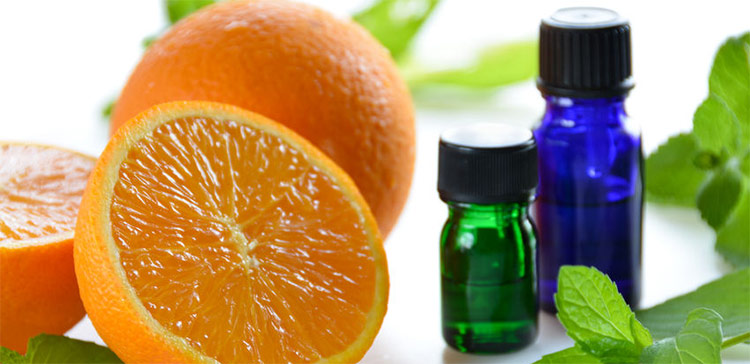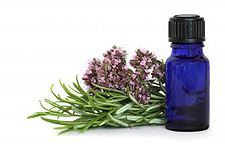Is All the Hype About Aromatherapy and Essential Oils True?

First, let's make sure that you understand the true definition of aromatherapy. Holistic aromatherapy is the practice of using volatile plant oils, particularly essential oils, for physical, emotional and spiritual well-being. Holistic aromatherapy does not include the use of fragrance oils or other synthetic products. For a more detailed explanation, see AromaWeb's article entitled What is Aromatherapy?

In the United States, no laws exist governing the use of the term aromatherapy, so any manufacturer, even those that include synthetic ingredients, can slap the word aromatherapy onto their product labels. And unfortunately, a number of companies do just that. Some even go so far as to hype unfounded claims. A majority of consumers mistakenly think that candles made using paraffin wax and fragrance oils (both emit toxins when burned) and a number of other toxic products that smell nice are suitable for aromatherapy.
Some journalists, manufacturers and retailers even refer to essential oils or aromatherapy as a "new discovery" thus giving the illusion that aromatherapy may be a new fad. Read the History of Aromatherapy to learn of its real origins. Journalists also routinely misrepresent the field of holistic aromatherapy and fill their fluff pieces with buzzwords like "cure."
Below are a few common questions and answers that will help clarify what aromatherapy can and can't do.
Can essential oils or aromatherapy cure my major illness or psychological problem?
If you expect that the use of essential oils alone will cure a major illness or permanently "cure" "stress," you will likely be in for a disappointment. But if you develop a realistic mindset and expect that the safe, sensible use of essential oils may help with a physical condition, may help with symptoms, may effect your mood, or help temporarily ease stress or other psychological factors, you should be delighted with the overall results that you experience by incorporating essential oils and aromatherapy into your lifestyle. For those that are newer in working with essential oils, your results will likely not be as effective as if you seek assistance from a qualified aromatherapist or practitioner with extensive experience working with essential oils.
Holistic aromatherapy is a complementary alternative health modality. Aromatherapy and the use of essential oils are not intended to replace standard medical care but can complement it when done appropriately. In some cases, under the guidance of a qualified practitioner, aromatherapy can offer an alternative choice to taking prescription or over-the-counter drugs. Aromatherapy can offer practical benefit for a variety of common ailments or symptoms such as assisting with cuts, wounds, bruises, inflammation, arthritis, muscle stiffness, indigestion, acne, skincare, haircare, hygiene, PMS, menstruation, and for providing mental and emotional assistance with such issues as stress, fatigue, anxiety, insomnia, fear and enhancing concentration.
Essential oils and the practice of aromatherapy can improve one's lifestyle tremendously, especially if you take the time to become educated about each essential oil, its chemistry, safety and applications. But, as with anything in life, sensibility comes into play. Do not fall prey to any claims that essential oils can cure major illnesses or can cause miracles to happen. Aromatherapy can be play a beneficial role, but it should not be depended upon as a cure.
Is there any actual "science" behind the use of essential oils?
Essential oils are comprised of an array of naturally occurring constituents generally grouped into functional families that include esters, oxides, alcohols, terpenes, phenols and aldehydes. Without giving you a full lesson in chemistry, let's use Roman Chamomile Essential Oil and Lavender Essential Oil as quick examples. Lavender Essential Oil contains approximately 40% linalyl acetate and Roman Chamomile Essential Oil contains approximately 35% isobutyl angelate. [Source: E. Joy Bowles, The Chemistry of Aromatherapeutic Oils (NSW, Australia: Allen & Unwin, 2003), 192-195.] Both linalyl acetate and isobutly angelate are esters. Esters are said to offer noteworthy anti-inflammatory and sedative properties. Both oils are common ingredients in aromatherapy products and recipes intended for relaxation and insomnia. Some essential oils, by way of the natural chemical constituents they contain, are said to be naturally anti-bacterial or antiviral. All essential oils possess their own unique combination of constituents that make particular oils naturally well suited for one application or another.
PubMed can be vry helpful in reviewing available research conducted on essential oils. However, not all studies available on PubMed are reputable, so care must be taken when evaulating the research available on PubMed.
Not all essential oils are safe to use in holistic aromatherapy no matter how "nice" (or "not-so-nice") they smell. Mugwort and Wormwood Essential Oils, for example, are generally avoided and considered hazardous oils within the field of holistic aromatherapy because they contain significant concentrations of ketones including thujone. Thujone is reported to potentially cause convulsions and liver damage. [Source: Robert Tisserand and Tony Balacs, Essential Oil Safety (United Kingdom: Churchill Livingstone, 1995), 199.] It's more sensible to stick with using essential oils that are generally regarded to be much safer.
Now, having said that, there are other uses for essential oils that aren't provable by science. The spiritual application of essential oils is a primary example. For more information, see AromaWeb's Aromatherapy for Spirituality & Enlightenment section.
For more information, see AromaWeb's Aromatherapy is Science Based article.
Why are essential oils and aromatherapy gaining so much press and exposure now if it's been in practice for thousands of years?
The use of aromatic infused oils has likely been in practice for thousands of years. Many of the aromatic oils mentioned in the bible are likely what we know as infused oils, not essential oils. Essential oils have only been in use since the time that distillation began. Read the History of Aromatherapy to learn of its real origins. The actual term aromatherapy, however, was introduced in the early 20th century. The surge in the popularity of aromatherapy seems to be threefold:
- Society today is more health conscious and is now more receptive to natural alternative health modalities including aromatherapy. The media, although often inaccurately, has been actively covering the trends in increased health awareness and alternative medicine. The media has made a point to include the aromatherapy "buzzword."
- The Internet has made it easier for individuals to access and share information about essential oils and aromatherapy. The ability to network and purchase essential oils online has had a positive effect on the growth of aromatherapy and aromatherapy businesses, but it has also lead to a lot of confusion due to misinformation.
- Lifestyles of today are now more hectic and stressful. Since aromatherapy can assist in reducing the symptoms of stress and help one energize or relax, society is taking notice. If you go to stores that sell any kind of candles, bath or beauty products, you'll most likely see products labeled with the word "aromatherapy." In my personal experience, most times I see the word "aromatherapy" on products not sold by reputable aromatherapy retailers, the word is used incorrectly. So, the surge in awareness of aromatherapy is both positive and negative. Unfortunately, there is a lot of misinformation about aromatherapy and mislabeled products around.
Some people claim that for best results, I should use essential oils on my skin at full strength. Others claim I should never use essential oils on my skin at full strength. Which is it?
Essential oils are concentrated liquids and are very powerful substances. They should not be consumed internally without education from a qualified educator or without personal counsel from a trained aromatherapist.
Essential oils should not be applied undiluted on the skin because they can be extremely irritating in full concentration. They can even cause permanent sensitization when used at full strength. For detailed information, read AromaWeb's Guide to Diluting Essential Oils.
AromaWeb displays banners and provides listings to a number of aromatherapy companies. Can I have confidence in the companies that advertise on AromaWeb?
When I first created AromaWeb in 1997, my primary goals included (1) sharing information about aromatherapy and essential oils, (2) teaching readers how to make enlightened choices about incorporating aromatherapy safely into their lifestyles, and (3) guiding consumers on choosing reputable companies to shop with. I was motivated by both the number of reputable aromatherapy companies and the number of companies that misuse the term aromatherapy and mislead consumers.
In fact, this Is All the Hype About Aromatherapy and Essential Oils article was one of the very first articles that I wrote for AromaWeb (but it has been updated several times over the years).
My schedule is very tight, and it is impossible for me to monitor all of the oils, products and services offered by every aromatherapy educator, practitioner and essential oil company. I cannot guarantee the integrity of every company that advertises on AromaWeb, but I do try to be selective and use my best judgement in who I permit to advertise. Over the years, there have been a lot of companies that I have turned down for advertising.
AromaWeb's valued advertisers support AromaWeb's efforts to to share objective, brand-neutral information about essential oils and the field of holistic aromatherapy with the public. As you shop, please make it your priority to patronize these fine educators and organizations that support AromaWeb with their banner advertising located throughout AromaWeb and the listings located within the Aromatherapy Business Directory.
Essential Reading:
- How to Buy Essential Oils
- How to Buy Aromatherapy Products
- A Precaution About "Aromatherapy" Candles
For further information, be sure to read the array of other articles contained within AromaWeb's Article Archive section.
